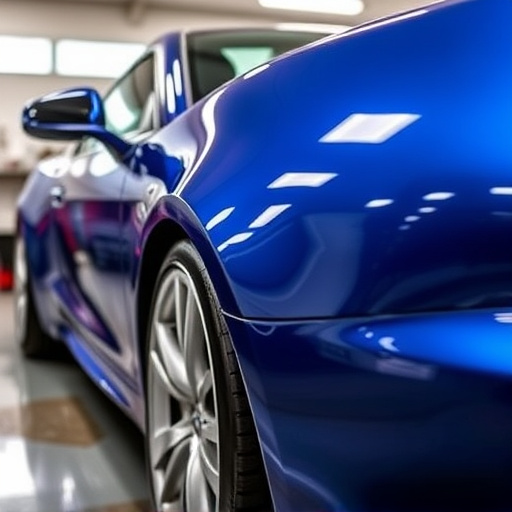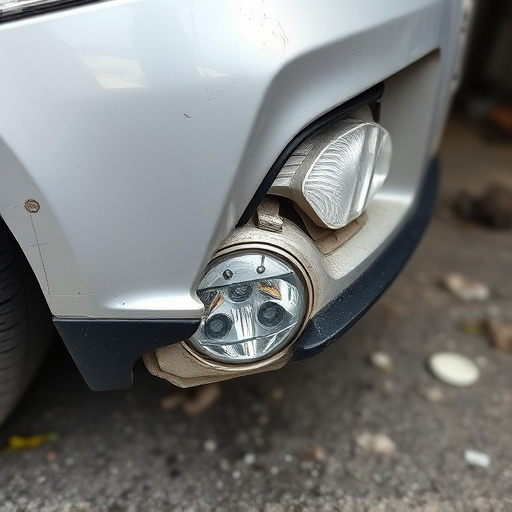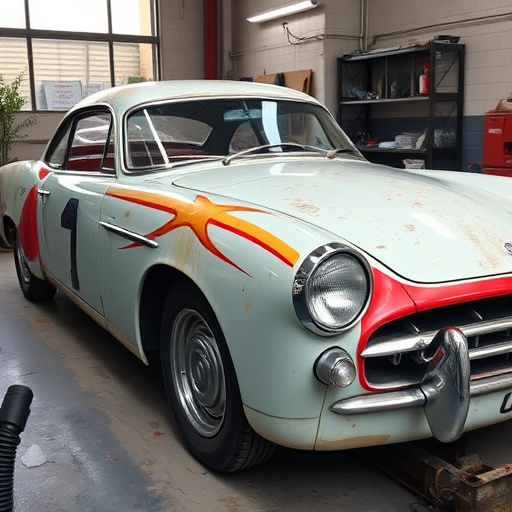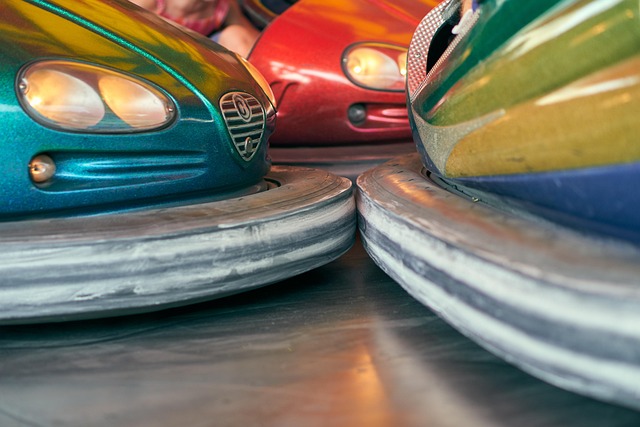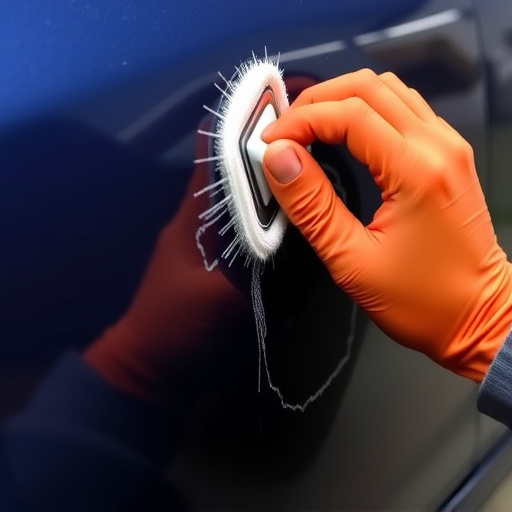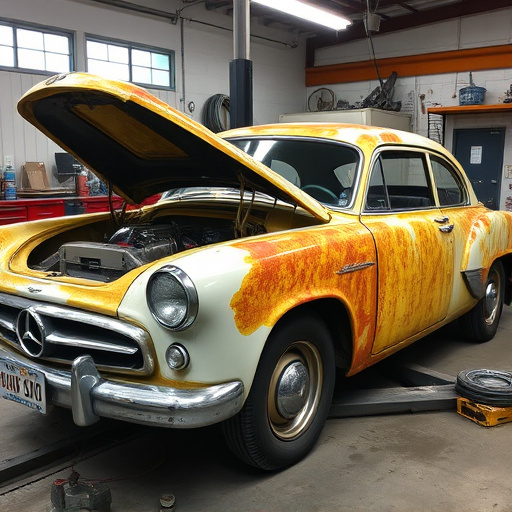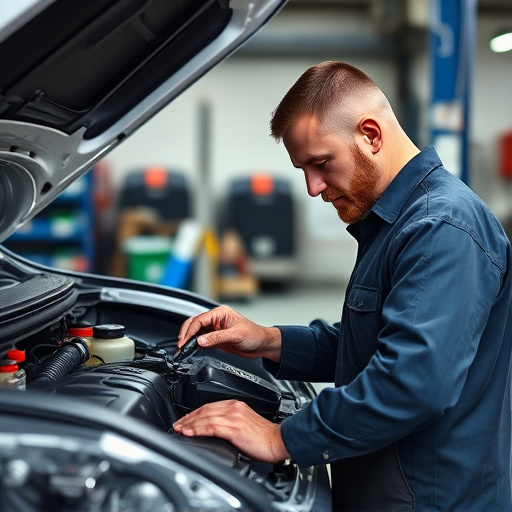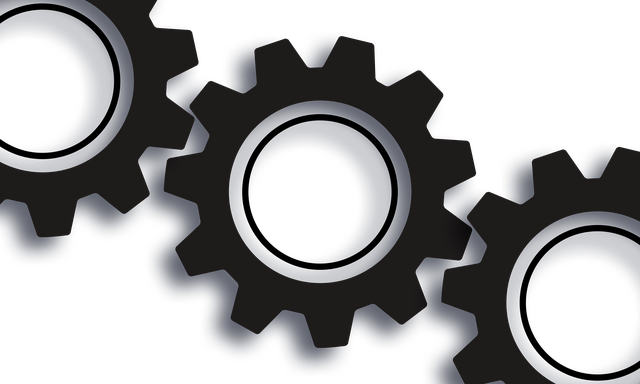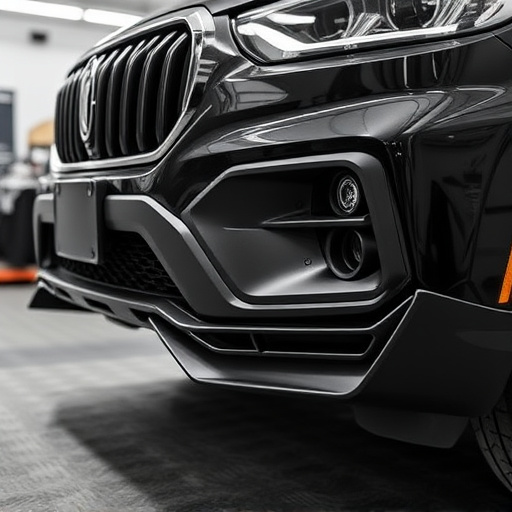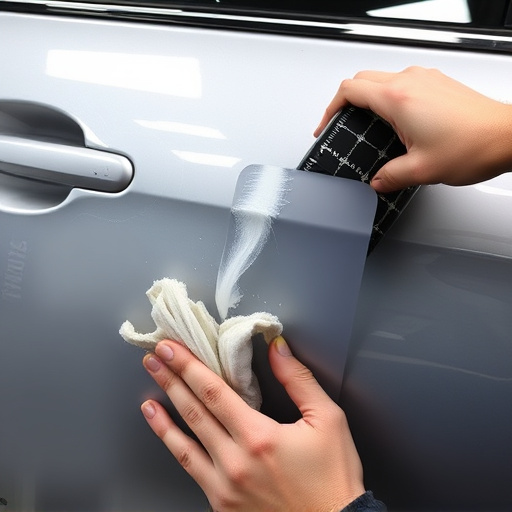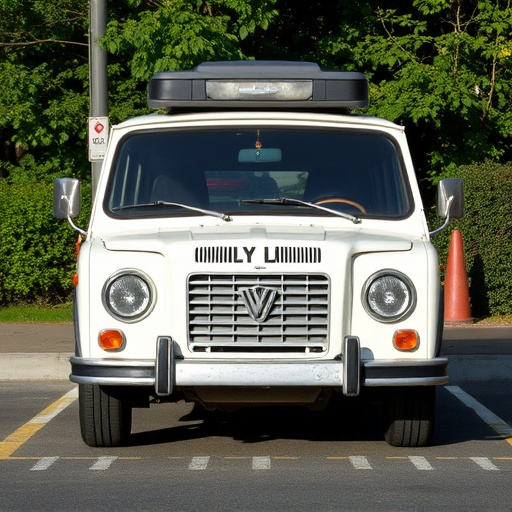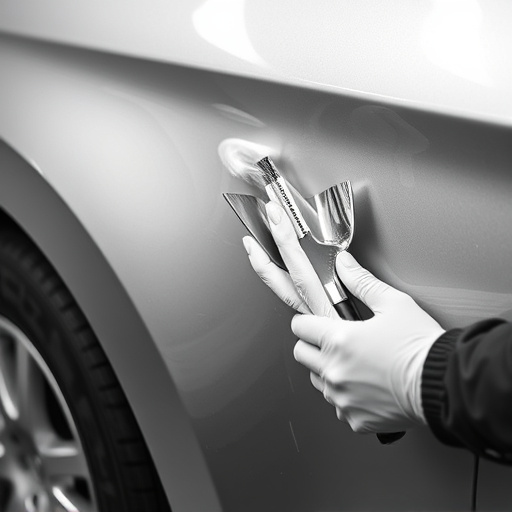Tesla structural aluminum repair is a complex task requiring specialized knowledge, precision tools, and professional skills. Unlike traditional metal repairs, it leverages unique techniques tailored to aluminum's light weight and corrosion resistance but demands exacting measurements and alignment due to potential impact on structural stability and performance. This makes DIY repairs impractical; instead, Tesla owners should rely on experienced professionals equipped with high-quality tools and automotive engineering resources to meet Tesla's strict manufacturing standards while ensuring safety and structural integrity. Specialized equipment like precision cutters, aluminum-capable welders, and exact measurement devices are crucial for accurate and safe repairs, typically found in collision or car body shops.
“Tesla’s innovative use of structural aluminum in their vehicles presents unique challenges for DIY enthusiasts. This material, while lightweight and durable, requires specialized knowledge and tools for effective repair, setting it apart from traditional metalwork.
In this article, we explore the complexities of Tesla structural aluminum repair, including its unique composition, safety hazards associated with high-voltage systems, and the precision needed to match factory finishes. These factors contribute to why professional expertise is essential for ensuring the integrity and performance of your Tesla.”
- Complexities of Tesla Structural Aluminum Repair
- – Unique aluminum alloy composition and specific design requirements
- – Specialized tools and equipment needed that are not commonly found in household garages
Complexities of Tesla Structural Aluminum Repair
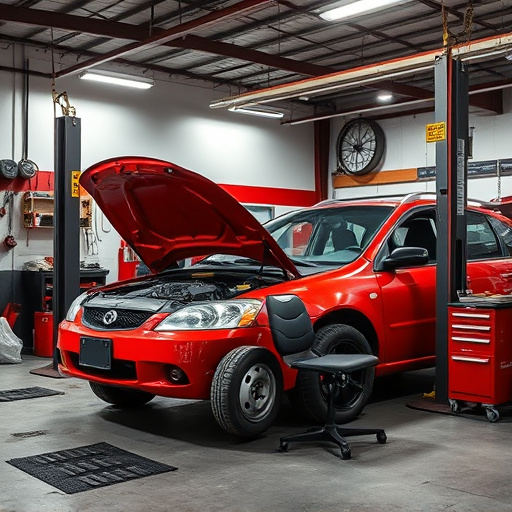
Tesla structural aluminum repair is a specialized task that involves intricate knowledge and precision. Unlike traditional metal repairs, which often use welding or riveting, Tesla’s structural aluminum components require unique techniques to maintain their integrity. These include specialized tools, equipment, and expertise to handle the material’s properties, such as its light weight and corrosion resistance.
The complexities stem from the need for exacting measurements and precise alignment during repair. Even a slight misstep can affect the car’s overall structural stability and performance. As such, it’s not a job suited for casual DIY enthusiasts. Instead, it demands the skills of experienced professionals who understand automotive engineering and have access to high-quality car repair services or auto body restoration facilities. Relying on an expert auto repair shop ensures that repairs are done correctly, safely, and in line with Tesla’s strict manufacturing standards.
– Unique aluminum alloy composition and specific design requirements
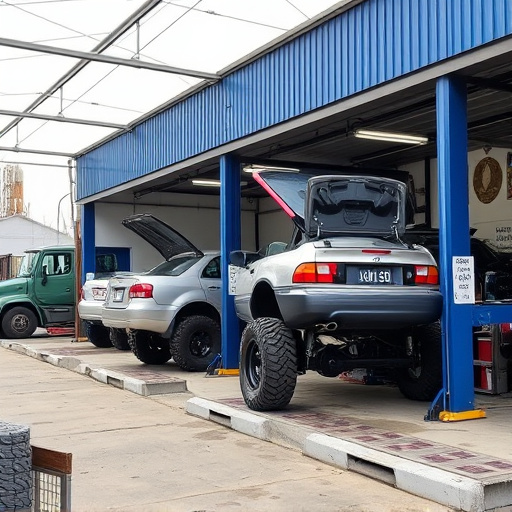
Tesla’s structural aluminum alloy is a unique composition designed to meet specific design requirements, setting it apart from conventional metal used in vehicle construction. This specialized material, integral to Tesla vehicles’ lightweight and durable frames, poses challenges for DIY repairs. Unlike traditional sheet metal or steel, aluminum has distinct properties that require specialized knowledge and tools for effective repair. Bending, welding, and joining structural aluminum need precise techniques and equipment, making it difficult for amateurs without professional training.
The intricate design of Tesla vehicles also demands accuracy in repairs to preserve the car’s aesthetics. Even minor misalignments or inconsistencies can affect the vehicle’s overall appearance, especially with the sleek and modern design language of Tesla cars. As such, attempting a Tesla structural aluminum repair without proper expertise may not only compromise structural integrity but also mar the vehicle’s aesthetic appeal, necessitating professional intervention for quality assurance in auto maintenance and vehicle dent repair.
– Specialized tools and equipment needed that are not commonly found in household garages
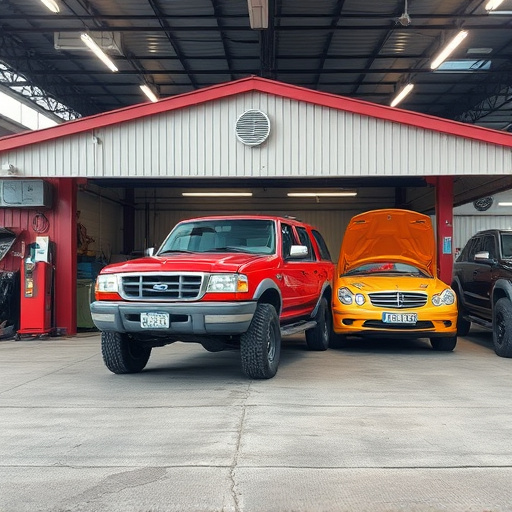
When tackling a Tesla structural aluminum repair, one quickly realizes it’s not your average DIY project. While many homeowners own basic tools, specialized equipment crucial for accurate and safe repairs is rarely found in typical garages. These include precision cutting tools, specialized welders capable of handling aluminum, and precise measurement devices to ensure exact fitting.
Accessing these items often requires a trip to a collision repair shop or car body shop, where professionals have the necessary resources and expertise. Their facilities are equipped with industry-grade equipment designed for complex auto body services, ensuring repairs meet manufacturer standards and safety requirements.
While the idea of DIY repairs may be appealing, Tesla’s structural aluminum repair is a specialized task that requires expert knowledge and advanced tools. The unique composition of Tesla’s aluminum alloys and stringent design standards make it impractical for home enthusiasts to replicate. Attempting such repairs without proper training could lead to structural integrity issues, compromising both safety and vehicle value. Therefore, when dealing with Tesla’s intricate aluminum construction, it is advisable to trust qualified professionals who possess the specialized equipment and expertise required for precise and secure repairs.
